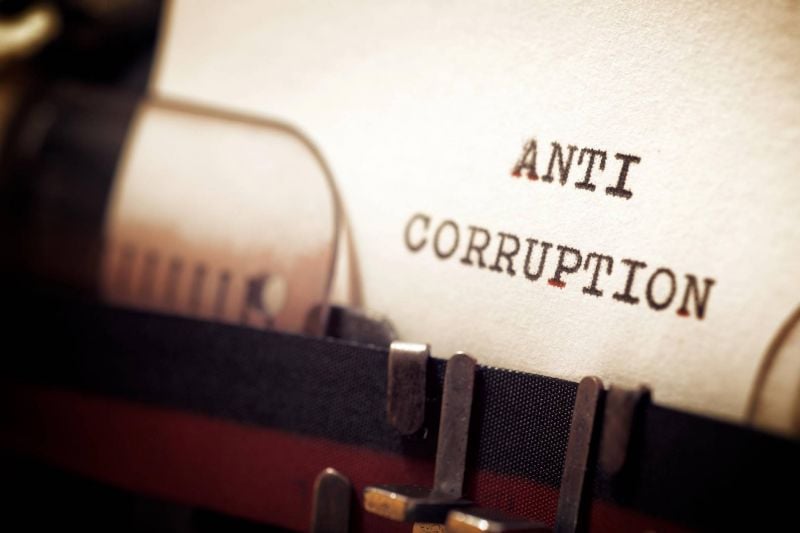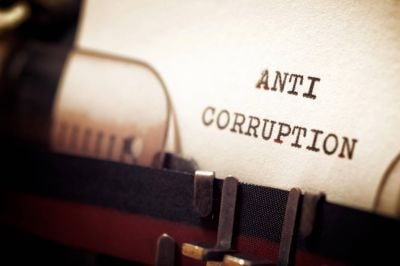
Illustration: Bigstock
Today is International Anti-Corruption Day. As the world marks this day, it offers us all the chance to speak out against practices that hinder good governance, equitable growth and economic development. It provides an opportunity to take a closer look at the challenges facing Lebanon and offers a chance to urge improvements, which can directly benefit the Lebanese people.
The Lebanese Government has acknowledged the need for anti-corruption policies. Lebanon has ratified the UN Convention Against Corruption and just recently the government agreed to the priorities set by the Reform, Recovery and Reconstruction Framework (3RF). In addition, Lebanon’s National Anti-Corruption Strategy, which was adopted in 2020, delineates the anti-corruption roadmap for the government. However, the National Anti-Corruption Commission, entrusted with the application of this strategy, remains without the necessary bylaws and resources to carry out its mandate.
The Lebanese people have also made their views clear: demonstrations during the so-called garbage crisis and the October 2019 popular protests gave rise to impassioned criticisms of government mismanagement and corruption. Furthermore, the unprecedented financial crisis and economic deterioration the country has experienced over the past three years raise serious questions as to the performance and commitment of decision-makers to effect change.
Since the horrific Beirut Port explosion of August 2020, survivors have demanded a transparent investigation into the causes of this devastating tragedy. We view with concern that the investigation process remains stalled. It not only leaves the families of the victims without justice, but also exemplifies the challenges to Lebanon’s prospects of establishing accountable governance in the future.
Certainly, Lebanon is not the only country in the world grappling with corruption challenges. However, despite growing public awareness and assertiveness in this regard, Lebanon’s trajectory over the last 10 years has been far from satisfactory in the eyes of its highly educated and sophisticated population. We agree.
Perceptions underline this: Lebanon currently ranks 154 out of 180 countries on Transparency International’s corruption perception index. Lebanon’s ranking has fallen dramatically over the course of the past 10 years.
However, in recent years, there have been some encouraging steps forward. Inter alia, Parliament adopted a law on the Right of Access to Information and a Public Procurement Law, which aims at closing loopholes that enable public sector embezzlement. In October of this year, Parliament also passed a Banking Secrecy Law, as part of the prior actions agreed between Lebanon and the IMF. Likewise, work is ongoing to finalise a draft law on the independence of the judiciary, which could be an important milestone as long as it is in line with international standards. Nevertheless, more must be done to secure the public’s trust in Lebanon’s institutions and leadership.
Today, Lebanon stands at a crossroads: bold actions are needed and time is running out. This makes it more important than ever to elect a president without further delay and form a government. Furthermore, the path to get out of the economic crisis is clear. Only by completing the prior actions, and agreeing to a full IMF recovery program, will the stage be set for credible governance conducive to reducing corruption and re-building trust in Lebanon’s state institutions and banks. If these actions were taken in good faith, Lebanon would once again become an attractive destination for international trade and investment.
While a sustainable recovery through cooperation with the IMF will take time and require a meaningful effort by the state, the private sector, and the Lebanese public, there simply is no better alternative. As G7, we stand ready to lend our support to the Lebanese people through this challenging, but necessary pathway to recovery.
Signatories:
Stefanie MCCOLLUM, Ambassador of Canada ;
Anne GRILLO, ambassador of France;
Andreas KINDL, ambassador of Germany ;
Nicoletta BOMBARDIERE, Ambassador of Italy;
Masayuki MAGOSHI, Ambassador of Japan;
Hamish COWELL, Ambassador of the United Kingdom ;
Dorothy C. SHEA, Ambassador of the United States;
Ralph TARRAF, Ambassador of the European Union.
